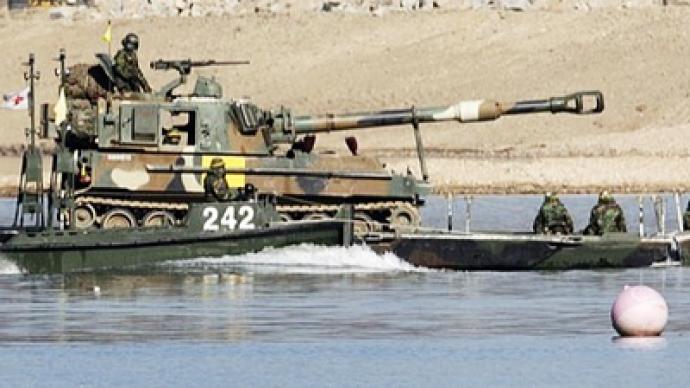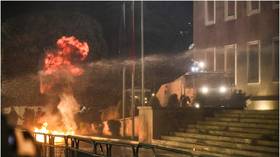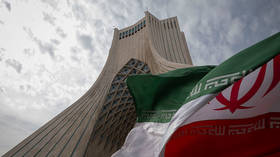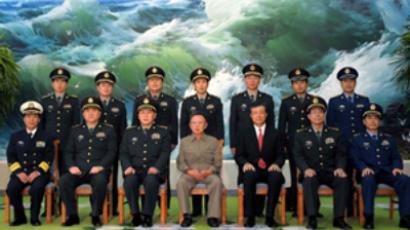Russia urges calm following gunfight in Korean peninsula

An artillery attack on a disputed island in the Yellow Sea by the North Korean military leaves one South Korean marine dead, four wounded and tensions high.
North Korea on Tuesday launched up to 200 artillery shells at an inhabited South Korean island, prompting South Korea to return fire, Seoul's military and media reports said.South Koreans awoke this morning to the news that one of their marines had been killed in the attack on Yeonpyeong Island, which is situated in the Yellow Sea just 7.5 miles (12 kilometers) from the North Korean coast and about 60 miles (100 kilometers) to the west of the coast. YTN television reported that several buildings were on fire and shells were still falling on the island. At least 12 people were injured. South Korea, which was engaged in war games at the time of the incident, returned fire, launching about 80 rounds of artillery towards North Korea, Colonel Lee Bung-woo, spokesman for the South Korean Joint Chiefs of Staff, told local media.The South Korean air force also scrambled combat aircraft, including F-16 fighter jets to the region. South Korean President Lee Myung-bak called an emergency session of his security ministries, and ordered officials to make sure that the conflict would not escalate.The Russian Foreign Ministry called for both sides to show restraint and not allow the incident to escalate."We believe the use of force is an unacceptable path. Any disputes in relations between the North and the South must be settled politically and diplomatically," the source said, as reported by Itar-Tass. He also emphasized that Moscow urges both sides "to demonstrate restraint and peace".The unpredictability of the North Korean leadership raises concerns about the security of Russia's Far East region, said Mikhail Margelov, head of the Federation Council Committee for International Affairs.After the incident involving the South Korean Navy corvette, the Korean peninsula found itself "in a negotiating vacuum," Margelov told Interfax, stressing that the situation presents a real danger to Russia's security."The unpredictability of Pyongyang, which is working hard on [developing] nuclear weapons, poses a threat far beyond the borders of the Korean peninsula and the Far East," Margelov said. "Such behavior by the Pyongyang leadership raises concerns for the security of our country's entire Far East region." The attack against the South Korean island only proves the danger of the overall situation, he added.Indeed, some officials in Moscow are asking why so much international attention is being given to Iran, a country that has no nuclear weapons, as opposed to North Korea, which has proven itself to be rather trigger happy these days.Meanwhile, South Korea's defence ministry on Tuesday ruled out the redeployment of US nuclear weapons on its territory as a deterrent against North Korea. "Redeploying US tactical nuclear weapons in South Korea would cross the line set by the policy of denuclearizing the Korean peninsula," Deputy Defence Minister Chang Kwang-Il told reporters. "We've not considered redeploying US tactical nuclear weapons and there has been no consultation with the US over the issue," he was quoted as saying by a ministry spokesman.The Pentagon said on Monday that the United States has no plans to redeploy the weapons. The United States still stations 28,500 troops in South Korea, but removed the atomic weapons in 1991 at the request of Seoul.It may be mere coincidence that the hostilities erupted just one day after the top US military officer, Adm Mike Mullen, said North Korea was "continuing on a path which is destabilizing for the region."Mullen was referring to the findings by scientist Siegfried Hecker who was granted access to North Korea’s new uranium enrichment plant. Hecker told The New York Times in an interview that he was "stunned" by the sophistication of the facility, which included an array of newly installed centrifuges.The North Korean government said the system was of a non-military nature.Hecker also expressed his surprise when he was shown an "ultra-modern control room" inside of the uranium processing facility.Hecker, a professor at Stanford University and former director of the Los Alamos National Laboratory, informed the White House of his discovery a few days ago, the newspaper reported Saturday on its website.The report, however, provided no details as to why the US scientist was granted a peek at the complex in the first place. But in light of today’s events, it could have been Pyongyang's attempt to ward off any sort of "premptive" action against it. In other words, North Korea, feeling threatened by its increasing isolation, needed to show off its technological savvy, and then back it up with a senseless act of violence against Seoul. Thus, possibly increasing Pyongyang's negotiating hand. Or the more unlikely scenario is that Pyongyang is considering the option of making peace with Seoul, and this is its way of saving face before a retreat.A History of hostility In May, South Korea formally accused North Korea for the sinking of a South Korean warship, the Cheonan, in March, which killed 46 sailors. South Korea suspended trade with the North and banned its ships from entering Seoul's waters. The White House calls the sanctions "entirely appropriate." North Korean leader Kim Jong-Il vowed to retaliate against any attempt to link his communist country to the sinking, which occurred in close proximity to the latest altercation. "We will swiftly respond to any punishment, acts of revenge or sanctions that violate our national interest by taking strong measures, including a full-scale war," the North Korean defense ministry said in statement. Today’s incident marks a rollercoaster ride that the Korean peninsula has been experiencing since before both sides signed a truce in 1953, bringing a close to the Korean War.In October, for example, North Korea opened its borders, allowing hundreds of South Koreans to cross into the North and reunite with relatives they had not seen in over six decades.Such bright moments in the history of the two countries, however, remain few and far between, and should serve as a wake up for the international community, which seems to place inordinate stress on Iran’s nuclear program at the expense of other hotspots in the world.Robert Bridge, RT













